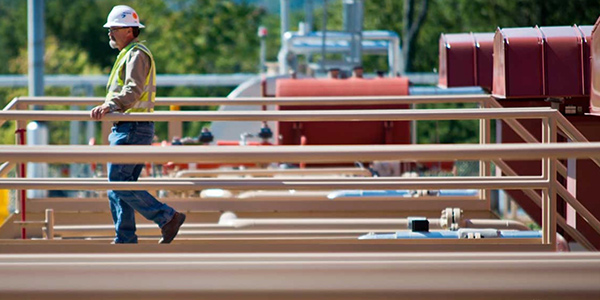DTE Energy backed away from its pipeline business last week, announcing that it will spin off its non-utility natural gas pipeline, gathering and storage business.
The transaction will have the company shedding DTE Midstream and becoming a pure-play electric and natural gas utility. Midstream is set to carve out its own Detroit headquarters and become an independent and publicly traded company by mid-2021. DTE shareholders will retain their shares and receive pro rata shares of the new Midstream company.
DTE said the move will not negatively affect rates, customers or utility operations. CEO Jerry Norcia said the Midstream spinoff announcement “follows a thorough review with our board to identify opportunities to optimize our portfolio and maximize shareholder value.”
“We recognize that this comes not long after our significant acquisition of assets in the Haynesville [Shale] basin,” Norcia said during the company’s third-quarter earnings call Oct. 27. “Through 2019, while business mix discussions were still ongoing, we continued to pursue an aggressive value creation agenda for Midstream, which yielded the Haynesville acquisition. … Because this acquisition and the balance of the Midstream portfolio continues to perform exceedingly well … and thrive on its own, it crystallized our path to pivot to a high growth pure-play utility with the spin of a well run Midstream company. We believe this strategy will unlock significant value for our shareholders.”
Current Midstream President and COO David Slater is set to become CEO of the standalone company.
After the Midstream transaction, DTE will receive about 90% of its operating earnings from its core utility business versus the 70% it receives today.
Midstream owns approximately 2,350 miles of pipeline and operates 91 Bcf of gas storage capacity. DTE acquired most of the network in $1.3 billion and $2.5 billion transactions in 2016 and 2019 respectively. When the deal is complete DTE estimates it will generate 90% of its operating earnings from its utility business versus the current 70% operating earnings from its core utility.
“As most of you know, my background includes a substantial amount of time in the gas industry, including my involvement in development of our Midstream business. The team and I have dedicated a significant amount of time and energy creating a Midstream business at DTE that is recognized as one of the best in the country. So, you can imagine how important this decision is to our team and me. After careful consideration and review with our board, I am confident that the separation is the best way to allow the Midstream business and its team to achieve their full potential and to enhance overall value for our shareholders,” Norcia said.
DTE estimates Midstream will earn $700 million before taxes in 2020.
The company reported third-quarter earnings of $476 million ($2.46/share), compared with $319 million ($1.73/share) in 2019. It said earnings were up because of higher year-over-year residential sales, higher rates and warmer weather. The earnings report represents a turnaround from first-quarter earnings, when DTE contemplated shaving millions from operations and maintenance expenses to offset drooping sales. (See DTE to Cut Spending in Response to Pandemic.)
“I want to thank all the leaders and our 10,000 employees of DTE for creating this tremendous success in a year of great turmoil and uncertainty,” Norcia said. “We are firing on all cylinders, keeping our people safe and delivering for our customers, communities and investors. It is truly remarkable and certainly a reflection of the grit and determination of the great people of DTE.”
Norcia said DTE plans to invest about $14 billion in its electric utility over the next five years, some of that in renewable generation. He noted DTE’s goal of achieving net-zero carbon emissions by 2050. For that to happen, he said DTE needs to double renewable capacity by 2024 and quadruple it by 2040.





